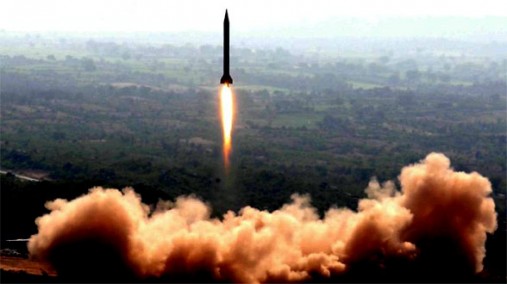It does seem as if something may be changing, however slowly, in Washington when it comes to policy towards Israel and the Palestinians. Rumors, for instance, are spreading in the media that the Obama administration is threatening to take Middle East peace negotiations out of the hands of the Israelis (and Palestinians) and put them in the hands of an “international peace conference,” should there be no breakthrough in peace talks by the fall. This would represent something new. But perhaps the most striking sign of possible change has hardly been noticed. Washington is beginning to speak openly about the Israeli nuclear arsenal, estimated at up to 200 weapons, a potential banquet of civilizational destruction.
Israel, which has never signed the Nuclear Non-Proliferation Treaty (NPT), has long taken the curious stance that it neither acknowledges nor denies the massive nuclear arsenal that everyone knows it possesses. And Washington has, until now, gone along with this strange fiction which, in turn, offered an almost mind-boggling spectacle of focus and denial. For years now, the Bush and then Obama administrations have concentrated on a nuclear weapon which doesn’t (yet) exist in Iran without the slightest discussion of the only Middle Eastern arsenal that does exist and what might be done about it.
No less bizarre: an acceptance by inside-the-Beltway power brokers that the doctrine upon which they were prepared to stake US or even global survival in the Cold War superpower stand-off with the Soviet Union—that deterrence or mutually assured destruction (MAD) would actually work when it came to the vast nuclear arsenals of both powers—has no application to the Middle East. The implicit assumption is that a mad Iranian government with its hands on one or more atomic weapons would do what a mad Russian one wouldn’t have done. It will use any bomb it produces on tiny Israel (despite the Israeli submarines in the Mediterranean quite capable of demolishing Iran).
Suddenly, at the UN conference on the NPT now underway in New York, the Obama administration is, according to the Wall Street Journal, discussing with Egypt and others the future possibility of creating what Secretary of State Hillary Clinton now terms a “weapons of mass destruction-free zone in the Middle East.” That such discussions are even taking place is evidence of change in Washington. Given all this, TomDispatch regular Ira Chernus considers just what’s at stake for the Obama administration in the Israeli-Palestinian tangle and what its most basic policy choice in the Middle East turns out to be.












